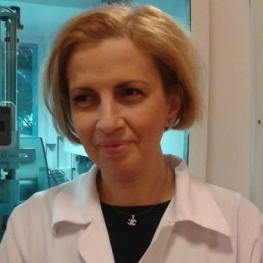Biomarkers for Pancreatitis and Its Complications
A special issue of Biomolecules (ISSN 2218-273X). This special issue belongs to the section "Molecular Biomarkers".
Deadline for manuscript submissions: 30 June 2024 | Viewed by 5841
Special Issue Editors
Interests: laboratory medicine; acute pancreatitis; biomarkers of inflammation; biomarkers of kidney diseases; acute kidney injury; chronic kidney disease
Special Issues, Collections and Topics in MDPI journals
Interests: laboratory medicine; acute pancreatitis; biomarkers of inflammation; biomarkers of kidney diseases; acute kidney injury; chronic kidney disease
Special Issues, Collections and Topics in MDPI journals
Special Issue Information
Dear Colleagues,
In 2012, the revision of the Atlanta classification redefined the severity of acute pancreatitis (AP) and stressed the importance of the early recognition of organ failure related to systemic inflammation and vascular dysfunction. Since then, improved fluid resuscitation and nutritional treatment in line with advancements in imaging techniques and minimally invasive surgery have significantly improved the survival rates of patients with severe AP. During the last decade, the systemic complications of AP (including cardiovascular, lung, and kidney failure) have gained research interest. Epidemiological data on prevalence and mortality rates have been collected, and our understanding of AP pathophysiology has improved, although there is still much work to be performed in this field. The early prediction of the severity of AP, however, remains challenging in clinical practice.
Recently, improved understanding of the pathophysiology of chronic pancreatitis (CP) and advancements in translational research have resulted in the publication of the International Consensus Statements on Early Chronic Pancreatitis. The historical definition of the disease that required “irreversible morphological change” for the diagnosis of CP has been replaced with a mechanistic definition proposed in 2016, allowing for the diagnosis of the disease in its early, potentially reversible stage. International consensus regarding the definition of early CP has not been reached because the presently available diagnostic measures cannot reliably distinguish early CP from other pathologies with overlapping symptoms. CP increases the risk for pancreatic cancer; however, cancer surveillance is only indicated in a highest-risk minority, partially due to a lack of accurate biomarkers.
This Special Issue will include both basic and translational studies on biomarkers of AP and CP. Articles/reviews that advance the knowledge of the early prediction of severe AP and early diagnosis of CP as well as pancreatic cancer are especially of interest.
Dr. Paulina Dumnicka
Prof. Dr. Beata Kusnierz-Cabala
Guest Editors
Manuscript Submission Information
Manuscripts should be submitted online at www.mdpi.com by registering and logging in to this website. Once you are registered, click here to go to the submission form. Manuscripts can be submitted until the deadline. All submissions that pass pre-check are peer-reviewed. Accepted papers will be published continuously in the journal (as soon as accepted) and will be listed together on the special issue website. Research articles, review articles as well as short communications are invited. For planned papers, a title and short abstract (about 100 words) can be sent to the Editorial Office for announcement on this website.
Submitted manuscripts should not have been published previously, nor be under consideration for publication elsewhere (except conference proceedings papers). All manuscripts are thoroughly refereed through a single-blind peer-review process. A guide for authors and other relevant information for submission of manuscripts is available on the Instructions for Authors page. Biomolecules is an international peer-reviewed open access monthly journal published by MDPI.
Please visit the Instructions for Authors page before submitting a manuscript. The Article Processing Charge (APC) for publication in this open access journal is 2700 CHF (Swiss Francs). Submitted papers should be well formatted and use good English. Authors may use MDPI's English editing service prior to publication or during author revisions.
Keywords
- acute pancreatitis
- recurrent acute pancreatitis
- chronic pancreatitis
- pancreatic cancer
- diagnostic biomarkers
- biomarkers of severity
- prognostic biomarkers







